Plenary & Invited speakers
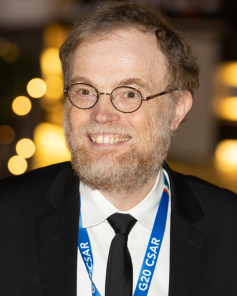
Marin Dacos
French Ministry of Higher Education and Research
Marin Dacos, National Open Science Coordinator at the French Ministry of Higher Education and Research. He has been highly involved in the writing process of the French Open Science Plans, and is coordinating the activities of the Open Science Committee. He was the Founding Director of OpenEdition, a scholarly infrastructure dedicated to open access publications in human and social sciences (HSS), created in 1999, and today recognised as a National Research Infrastructure. He received the CNRS innovation medal in 2016, being the second scholar in human and social science to receive it. He is the author of dozen of articles and two books about digital humanities and open science.
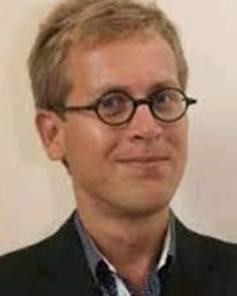
Clément Evroux
European Parliament
Clément Evroux graduated in public affairs at institut d’études politiques de Paris, and in publics economics at university Luigi Bocconi (Milan). He joined CNRS headquarters in 2011 as an lawyer, in charge of different aspects of human resources and scientific integrity. From 2014 to 2018, he worked as a policy and legal advisor on EU affairs at the French ministery for higher education and research. In 2019, he joined the European Commission as a seconded national expert to coordinate the Horizon Europe strategic programming. Since 2021, he is working as a policy analyst at European Parliament research service, mainly on research and space policies.
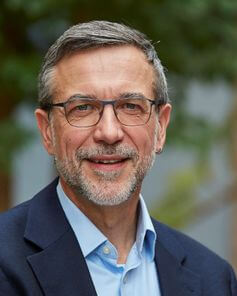
Prof. Heinz Fehrenbach
University of Lübeck
Heinz G. Fehrenbach, biologist and human anatomist, was full professor for Experimental Pneumology at the University of Lübeck, Germany. From 2008-2023 he worked at the Research Center Borstel, member institute of the Leibniz Association. His focus was on quantitative histopathology (design-based stereology) of lung diseases. Since 2021, Heinz is QSA/ECA-certified systemic personal and business coach.
From 2009 – 2011, Heinz served as Ombudsman at the Research Center Borstel where he initiated and co-developed the Borstel Model, a workshop program on scientific integrity for research teams. In the following years, he was further engaged in the working group on research ethics of the Leibniz Association. In 2020, he initiated and co-established the Network against Abuse of Power in Science. that aims at supporting members of the academic system of all levels who face abuse of power in its various forms.
You can find more details through his LinkedIn account
Photo taken by: Marco Warmuth, Halle, Germany.

Dr Tomáš Foltýnek
Masaryk University
Dr. Tomáš Foltýnek is an assistant professor at the Department of Machine Learning and Data Processing at the Faculty of Informatics and a member of the Ethical Committee for Research at Masaryk University, Czechia. He is President of the Board of the European Network for Academic Integrity. He is also a vice-chair of the Bureau of the Council of Europe’s Pan-European Platform for Ethics, Transparency, and Integrity in Education (ETINED), and a deputy head of the Working Committee on Ethics in Scientific and Pedagogical Work within the Council of Higher Education Institutions in Czechia. His research activities involved plagiarism detection and prevention, academic integrity policies and ethical use of artificial intelligence in education. He has led several national and international projects on academic integrity, namely plagiarism prevention. Since 2013 he has been organising conferences on this topic. He is a certified VIRT2UE research integrity trainer.
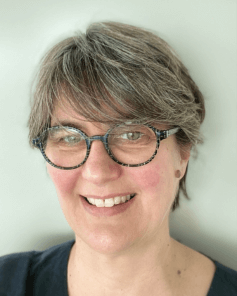
Anne-Catherine Fritzinger
Sorbonne Université
Anne-Catherine Fritzinger has been the director of the Sorbonne University Libraries since 2018. In 2022, she was appointed senior advisor on open science to the University President. She was a leading contributor to the drafting and implementation of Sorbonne University’s open science policy and participates in the university’s working group for research that is open, trustworthy and responsible. She is also an active member of the LERU policy group on open science and, at national level, represents the Udice network of French universities on the Permanent Secretariat for Open Science. Anne-Catherine holds degrees in philosophy and art history from the University of Strasbourg.
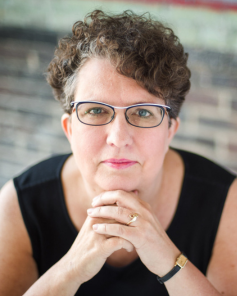
C.K. Gunsalus
University of Illinois Urbana-Champaign
C. K. Gunsalus is the Director of the National Center for Principled Leadership & Research Ethics (NCPRE), Professor Emerita of Business, and Research Professor at the Coordinated Science Laboratory in the Grainger College of Engineering at the University of Illinois Urbana-Champaign. NCPRE develops tools, systems, and resources for educating about ethics and leadership; helps institutions assess the integrity and civility of their research environments; provides strategies for diagnosing and addressing dysfunction in academic units; supports university departments to develop and improve their offerings in ethics, the responsible conduct of research, and leadership; and offers professional development programs for sitting and emerging leaders, with particular expertise in those operating in academia.

Dr Maura Hiney
University College Dublin
Maura is an Adjunct Professor of Research Culture at University College Dublin and was previously a senior manager at the Health Research Board Ireland. She has been involved in advancing research integrity (RI) policy for many years, is Treasurer of the World Conference on RI Foundation and Co-chair of the 8th WCRI. She is on the Embassy of Good Science Foundation Board, Chair of the ALLEA Permanent Working Group on Science and Ethics, where she co-authored the European Code of Conduct for RI, and was Vice-Chair of ENRIO until 2022. She sits on several EU Policy and Stakeholder Advisory Boards for EU projects that research RI and ethics issues, including training, harmonisation of guidelines, the impact of behavioural interventions, Open Science, reproducibility and the ethical challenges of new and disruptive technologies.
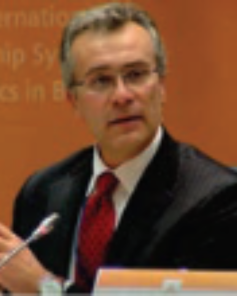
Isidoros (Dorian) Karatzas
European Commission, DGRI
Isidoros Karatzas is the Head of the Research Ethics and Integrity Sector, European Commission (EC), DG Research & Innovation, in Brussels Belgium. He is responsible for the methodological and operational aspects of the Framework Programmes Ethics Appraisal procedure. In addition, through the ERA specific programme he is responsible for the development of a policy framework at the European level and the impact of research projects in ethics and integrity in many areas including emerging technologies and human rights, promotion of research ethics and research integrity, the future of ethics review and innovative methods for education and training.
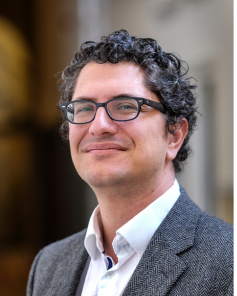
Prof. Cyrus Mody
Maastricht University
Cyrus Mody is Professor of the History of Science, Technology, and Innovation at Maastricht University in the Netherlands. He has written three monographs with MIT Press, most recently The Squares: US Physical and Engineering Scientists in the Long 1970s (2022) as well co-editing (with Joseph Martin) Between Making and Knowing: Tools in the History of Materials Research (World Scientific, 2020). With Lissa Roberts and Otto Sibum he also guest-edited a special issue of History of Science on “Historicizing Research Integrity and Fraud.” He is PI of the Managing Scarcity and Sustainability project (https://managingscarcity.com/) funded by the Dutch Research Council, and a co-PI of the ERC Synergy project NanoBubbles (https://nanobubbles.hypotheses.org/).
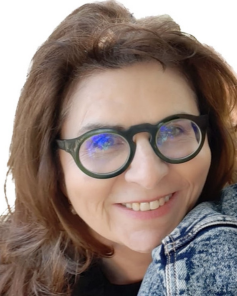
Prof. Lissa Roberts
University of Twente
Lissa L. Roberts is emeritus professor of history of science and technology in global context at the University of Twente. She currently serves as editor-in-chief of the journal History of Science and co-editor of the Cambridge University Press book series Science in History. Her interests and publications are wide-ranging, including the historical relationship between science and technology, the history of chemistry, technological entrepreneurship, and global history. Concerned that current approaches to research integrity are insufficiently rooted in an understanding of the historical dynamics that shape research practices and the environments in which they take place, she and Cyrus Mody organized a collaborative project that culminated with the publication of the special issue “Historicizing Research Integrity and Fraud,” History of Science 58.4 (2020). She is currently coordinating a project that brings historians of science and labor historians together, aimed at understanding science as work.
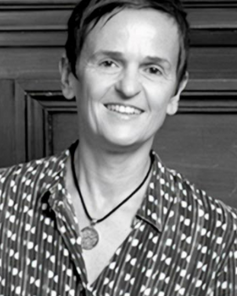
Prof. Stéphanie Ruphy
French Office for Research Integrity
Pr Stéphanie Ruphy is the director of Ofis since 2021, after previously being a member of its advisory board (2018 to 2020). She is Professor of Philosophy and Contemporary Sciences in the Department of Philosophy at the Ecole normale supérieure. Trained in philosophy (PhD) in the United States at Columbia University, she also holds a doctorate in astrophysics (Observatoire de Paris/Sorbonne University). She is an elected member of The Academia Europaea (since 2018) and of The European Academy of Sciences (since 2017).
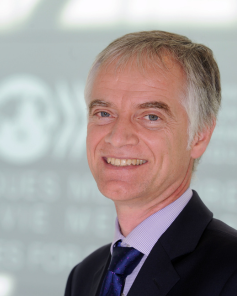
Dr Carthage Smith
Global Science Forum, OECD
Carthage Smith joined the OECD as head of the Global Science Forum (GSF) Secretariat in June 2014. He is responsible for working with countries to define the overall strategy and priorities for the Forum. This includes policy work on research infrastructures, Open Science, research funding mechanisms, science advisory processes and research careers. In June 2022, the GSF published a report on Integrity and Security in the Global Research Ecosystem.
Carthage was originally trained as a biochemist, with a PhD in neuroscience (Newcastle University, UK). Prior to joining the GSF secretariat, he was Deputy Executive Director of the International Council for Science (ICSU, Paris) for twelve years. In this position he led the strategic development of a number of major global science initiatives. Before moving to France, he spent six years at the UK Medical Research Council, where he was Head of International Cooperation.
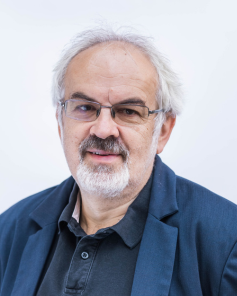
Oldřich Tůma
Czech Academy of Sciences, President of ENRIO
Oldřich Tůma is an historian, senior research fellow at the Institute of Contemporary history, Czech Academy of Sciences, formerly (1998-2017) director of the Institute. With an original research focus on medieval history and Byzantine history, he now devotes himself to contemporary history: the post-1945 history of Czechoslovakia and the Cold War history.
He is the president of the Commission for Scientific Integrity of the Czech Academy of Science. He is the current president of ENRIO.
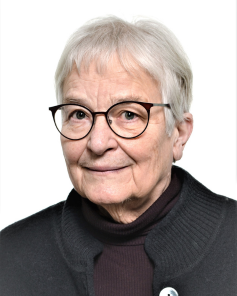
Prof. Krista Varantola
Council of Finnish Academies
Chancellor emerita Krista Varantola received her PhD in English from the University of Turku in English, Finland in 1985. In 1989 she became professor of English at the University of Tampere. She has held several administrative positions at Tampere and served as Rector (President) and Chancellor of the University of Tampere.
She chaired the Finnish National Board on Research Integrity in Finland for nine years and is currently a permanent expert on the Board. She has served as Vice-Chair on the Board of ALLEA and is currently member ALLEA´s Permanent Working Group on Science and Ethics, as well as Chair of the drafting group updating the 2017 version of the ALLEA European Code of Conduct for Research Integrity to appear in 2023. She has also been involved in an advisory role in a number EU-funded research projects related to research integrity and ethics.
Invited Panel : Anonymity, communication and transparency in investigation procedures
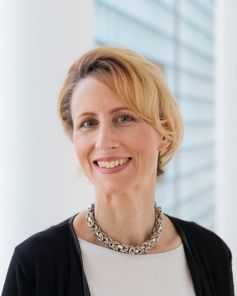
Pr. Nicole Boivin
Max Planck Society
Nicole Boivin is a Scientific Member of the Max Planck Society and Honorary Professor at the University of Queensland, Australia. She is former Director of the Max Planck Institute for the Science of Human History in Jena (2016-2022), and held previous positions at the Universities of Cambridge, Oxford and Paris. Nicole Boivin’s research addresses human-environment interactions over the long term, and she has received funding from, amongst others, the European Research Council, Natural Environment Research Council UK, Australian Research Council, British Academy, and Arts & Humanities Research Council UK. Nicole Boivin also campaigns for greater accountability and oversight of European research organisations, as well as gender parity in higher education and research.
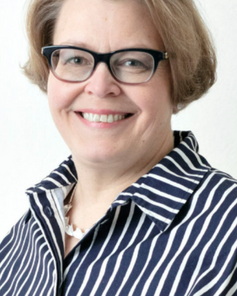
Dr Sanna-Kaisa Spoof
Finnish National Board on Research Integrity TENK
Dr. Sanna-Kaisa Spoof is the Secretary General for Finnish National Board on Research Integrity TENK (2010–). She received her PhD in European Ethnology in University of Helsinki. Her previous working experience includes positions as Faculty Head of Research Administration (Faculty of Arts, University of Helsinki), Head of Department of Continuing Education (Sibelius Academy), Secretary General (Lahti University Consortium) and Research Associate (University of Helsinki, Department of Cultural Studies). She is the former Chair of ENRIO. She has been both a project manager and a member or chair of steering groups in various EU-funded education end regional projects. She is also a member of the Council of Europe Platform on Ethics, Transparency and Integrity in Education (ETINED).
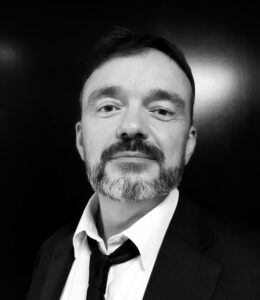
James Parry
UKRIO
James is the Chief Executive of the UK Research Integrity Office. Joining UKRIO in 2006, he took up his current role in 2008, overseeing UKRIO’s transition to a registered charity supported by over 110 research organisations.
He directs UKRIO’s work programme and leads its advisory service, responding to queries and concerns about research practice from researchers and the public. He helped develop UKRIO’s Code of Practice for Research and other publications, used by many leading research organisations.
James works with UKRIO’s subscribers to provide them with tailored support on research practice. He regularly speaks on how to sustain and enhance good research practice and research culture & systems; audiences have included the Royal Society, the Nuffield Council on Bioethics, the UK National Research Integrity Forum, the Irish National Forum on Research Integrity, and the World Conference on Research Integrity.
James has collaborated in numerous initiatives to support research integrity. He contributed to the Royal Society-UKRIO project Integrity in Practice, a tool kit examining ways to effect positive change to research culture, and is an Observer on the Concordat Signatories Group, helping with the ongoing development of the UK Concordat to Support Research Integrity. James is currently participating in a number of high-level reviews and initiatives exploring improvements to the UK’s research integrity landscape and has been called to give evidence to multiple Parliamentary inquiries into research integrity.
Prior to joining UKRIO James worked as an archaeologist and a university administrator. He was elected as a Fellow of the Royal Society of Biology in 2023.